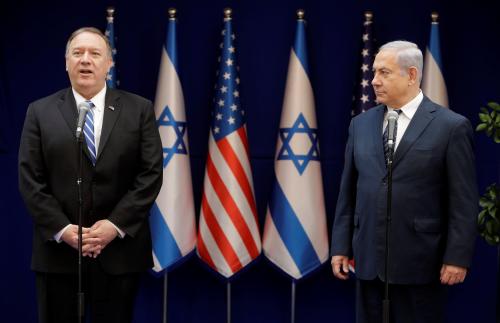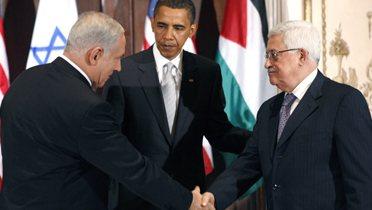Shalom Lipner asks: Before we presume to regulate affairs outside Israel, shouldn’t we first fix our own house? Political progress will likely to lead to a certain reduction in the severity of the delegitimization threat facing Israel. This piece originally appeared in the Jerusalem Post.
Over the course of a generation, I maintained an intimate relationship with the struggle for the good name of the State of Israel. I fought against the “delegitimization” of the Jewish state before the phenomenon even had an appellation of its own. Today, I remain firm in my belief that we’ve been granted an awesome privilege to partner in the renaissance of the Jewish nation and homeland, but worry that I may also have contributed to the birth of a monster. Hear me out.
From the time of its inception and up the present day, the State of Israel has been challenged by those who would deny its right to exist as a sovereign state. This campaign continues to be waged in international courts and institutions, the media, academia and other arenas.
The Israeli establishment began to upgrade its attention to the matter in 2001, in the wake of the infamous Durban conference – when anti-Israel forces effectively abducted an event intended to highlight the bitter predicament of persecuted African communities, for the sake of assaulting Israel. Coming on its heels were multiple incidents in which lawsuits were filed in Europe against senior Israeli politicians and IDF officers; those accused of war crimes were grounded at home. After the release of the Goldstone Report and the subsequent Mavi Marmara entanglement, even those in uniform had to admit that we were facing a tangible threat to our national security.
In some ways, Israel had finally discovered America – or rather, Europe. Jewish communities around the world had long warned of the seriousness with which Israel’s detractors were approaching their mission. But while these communities organized themselves and toiled to fend off the waves of criticism against Israel, they rarely found an attentive ear in Jerusalem. Successive governments were occupied with other, if not necessarily less important pursuits, and did not join in what were perceived as the minor public relations battles raging far away from here. I was then among the few addresses to which our distressed brothers and sisters turned, working to raise consciousness of the evils in store.
Soon after taking up this gauntlet, however, the State of Israel quickly developed a ravenous appetite and immediately plotted to take charge of the whole field. Fast-forward from relative indifference to guns blazing. If the problem had not yet been resolved, it must be that Israel’s friends abroad were incapable of dealing with it – and so it was time for Israel itself to inject order. And what can one do if we behave like a pack of elephants in a china shop? Instead of drawing ridicule to the delegitimization campaign against the only functioning democracy in our region and shrinking the dimensions of the phenomenon, Israel actually proceeded to inflate the problem through conferences – not just promotional ones, but even diplomatic ones at UN headquarters no less! – and chatter about (forgive me for using the term just this once) the Boycott, Divestment and Sanctions movement. I simply cannot fathom why anyone in Israel would insist on branding a movement that, believe it or not, many around the world still haven’t heard of.
And before we presume to regulate affairs outside Israel, shouldn’t we first fix our own house? Throughout my career, I’ve had the honor to work alongside numerous colleagues, exceedingly dedicated and professional civil servants and activists of multiple NGOs. Those working for Information Minister Gilad Erdan, who holds ministerial responsibility for the issue, are an equally intelligent and high-quality bunch. But our deployment against this challenge is far from optimal. It defies comprehension that, instead of allocating additional resources and staff to the Foreign Ministry – our only genuine “boots on the ground” – the ministry’s mandate has rather been dispersed among a series of competing ministries.
A little humility wouldn’t hurt. Comprehensive strategies formulated in Israel will not obligate anyone abroad, not even those who might endorse them. To the contrary, supporters of Israel, each in their own backyards, are not actually sitting around and waiting for Torah to come forth from Zion. It is they – and not Israel, the foreign country – who wield power (and the vote) in their domestic environment, speak the local language and maintain relationships with the powers that be in their communities. They need to determine the agenda based on their experience and familiarity with the local scene. The State of Israel has to accustom itself to taking a back seat and playing a supporting role.
We won’t win this struggle with antagonistic measures.
The Israeli government might satisfy some political urge to declare its presence in the ring by planting its flag in Harvard Yard, but it would surely deter students from listening to our arguments. The only surrogates capable of penetrating young hearts on the campus, and possibly persuading them of the justice of Israel’s cause, are their classmates.
What then should Israel do? First of all, express its appreciation to those advocating on its behalf, Jews and non-Jews around the world, motivated by goodwill to assist a country where most of them are not even citizens.
Their support is not a given. We need to respect their preeminence and sophistication vis-à-vis events on their own turf, and take both them and principled positions – including on issues of religion and state – into account when we expect them to stand in solidarity with us.
The added value that the Israeli establishment can bring to this battle of ideas rests in developing and sharing knowledge, and activity budgets should be invested there.
Providing a stream of current information will enhance the effectiveness of pro-Israel activists; their ability to refute lies being spread about Israel is largely dependent on the oxygen of solid, reliable facts. Israel’s strength lies also in its research skills, as a laboratory for analyzing and forecasting trends and integrating relevant data points.
These outputs can serve the full spectrum of our partners.
Beyond that, Israel should not meddle in, and certainly not try to dictate to other communities. On a practical level, Israel should redirect its efforts inward, designing platforms that give faithful presentation to life here. The experience of visiting Israel has proven to have a profoundly positive impact, with visitors also coming to recognize the complexity of the dilemmas facing both Israel and the entire region. Training competent spokesmen, and producing quality films and mobile exhibits are additional components of this package.
Finally, and without underestimating the security dangers that lurk outside – and which offer limited maneuverability – it must be said that political progress will also likely to lead to a certain reduction in the severity of the delegitimization threat. No, it won’t eliminate the challenge completely, and Israel’s hard-core enemies who seek its destruction will never desist from their pursuit of this objective, but it’s reasonable to assume that the advent of any hopes for peace will pull the rug out from under some of Israel’s critics.
These thoughts are not mine alone. Hopefully, the influence of those policy-makers who share them will prevail, empowering us to leverage – creatively and judiciously – the many successes we have already had in this fight.










Commentary
Op-edFighting delegitimization: Getting by with a little help from your friends
December 19, 2016